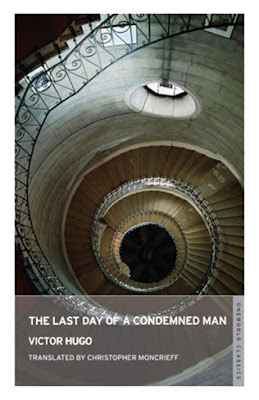Journey to the End
By Victor Hugo
Translated By Christopher Moncrieff
France, 1829
Romaticism, Philosophical
Main Attractions
1. Resonating, Haunting details
2. Very Quotable Lines
3. Short & Powerful Narrative
4. Progression of Thoughts
5. Intro to Death Penalty Issue
6. Hugo's a Death Penalty Abolitionist
7. His Crime Remains Unknown
8. Entices the Reader to Reflect
9. We Empathize with Him
10. Dark Humour & Surprises
Postcard
Cuisine & Delicacies
Ranked as: Ghost Pepper BBQ Ribs
The thoughts of this man are so real. For each reader, some parts could seem more raw than others and have a longer lasting impression. The descriptions are chiseled like a master craftsman. Some phrases could be haunting and memorable and I think that’s the real power of this book. It’s short and not a word is wasted. It’s easy to read, but difficult to forget. The shortness is a powerful reminder of how fleeting life is.
Why Visit Here
It’s a very short yet seemingly real portrayal of a man’s final thoughts on death row. It’s even more powerful because the reader never learns what the condemned man’s crime is. The reader cannot judge him based on his crime or whether he’s guilty or not. The man is already condemned to death, so the focus is on his mind’s final journey.
Hugo wrote it with the desire of abolishing the death penalty which is still a very relevant issue today. This book can launch ethical discussions as well as policy driven ones. Does the death penalty reduce criminal activity? Is it ethical to take a life for some crimes? What effect do these situations have on the family of the criminal and the victim’s family? Why are we still evaluating the policies of the justice system?
Off the Beaten Path
Overview of the Current Debate in the US in 5 minutes.
Packing List
✓ A Documentary on the Death Penalty
✓ A Quick Self Check for Pro or Con
✓ Time to Reflect on Impacts after Reading
Recommended Resources
Alternate Books
✓ Crime & Punishment By Fyodor Dostoevsky - Extensive journey into the mind of a one time criminal and the after effects on his mind.
By Victor Hugo
Translated By Christopher Moncrieff
France, 1829
Romaticism, Philosophical
Main Attractions
1. Resonating, Haunting details
2. Very Quotable Lines
3. Short & Powerful Narrative
4. Progression of Thoughts
5. Intro to Death Penalty Issue
6. Hugo's a Death Penalty Abolitionist
7. His Crime Remains Unknown
8. Entices the Reader to Reflect
9. We Empathize with Him
10. Dark Humour & Surprises
Postcard
Cuisine & Delicacies
Ranked as: Ghost Pepper BBQ Ribs
The thoughts of this man are so real. For each reader, some parts could seem more raw than others and have a longer lasting impression. The descriptions are chiseled like a master craftsman. Some phrases could be haunting and memorable and I think that’s the real power of this book. It’s short and not a word is wasted. It’s easy to read, but difficult to forget. The shortness is a powerful reminder of how fleeting life is.
Why Visit Here
It’s a very short yet seemingly real portrayal of a man’s final thoughts on death row. It’s even more powerful because the reader never learns what the condemned man’s crime is. The reader cannot judge him based on his crime or whether he’s guilty or not. The man is already condemned to death, so the focus is on his mind’s final journey.
Hugo wrote it with the desire of abolishing the death penalty which is still a very relevant issue today. This book can launch ethical discussions as well as policy driven ones. Does the death penalty reduce criminal activity? Is it ethical to take a life for some crimes? What effect do these situations have on the family of the criminal and the victim’s family? Why are we still evaluating the policies of the justice system?
Off the Beaten Path
Overview of the Current Debate in the US in 5 minutes.
Packing List
✓ A Documentary on the Death Penalty
✓ A Quick Self Check for Pro or Con
✓ Time to Reflect on Impacts after Reading
Recommended Resources
Alternate Books
✓ Crime & Punishment By Fyodor Dostoevsky - Extensive journey into the mind of a one time criminal and the after effects on his mind.


Comments
Post a Comment